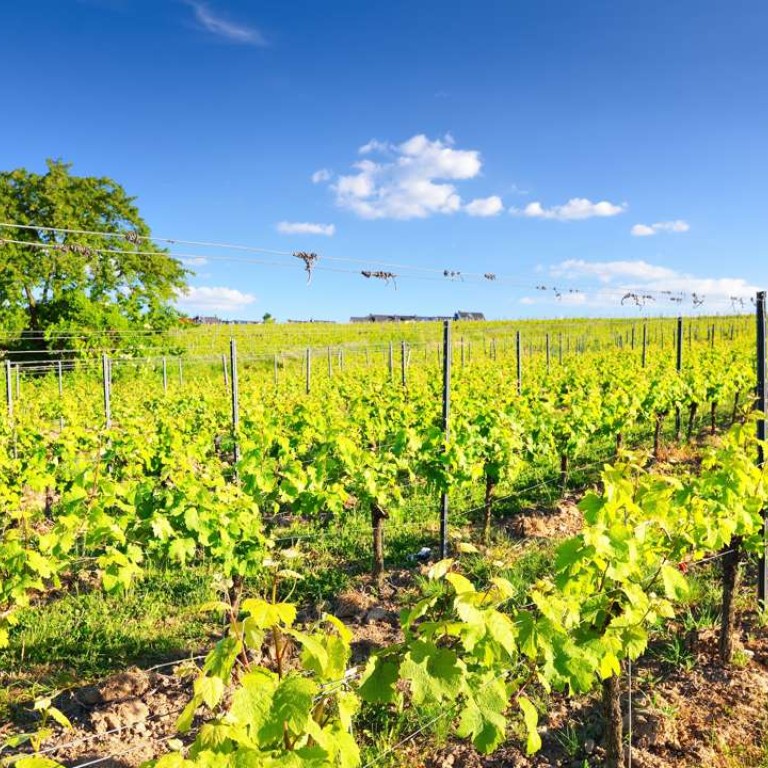
Why wine lovers need to rethink German rieslings – they’re not all sweetness and light
Often misunderstood, and mispronounced, German rieslings are becoming drier, zestier and more mineral
Many wine drinkers are under the impression that all German rieslings are sweet. They’ll probably be surprised to learn that two-thirds of German wines in the 2014 vintage were classified as trocken (dry) or halbtrocken (semi-dry), according to wine writer Andrew Jefford.
The British writer does not regard this as a positive trend. “If everything is sappy and spotless and dry and around 12.5 per cent, from north to south, haven’t we lost as much as we’ve gained? Might ‘the Big Dry’ not make German wine more same-y?” he writes.
However, this knowledge may encourage more wine lovers to try German riesling and change the perception that it is all sugary sweet and watery, with searing acidity. Leading producers are now creating wines that are minerally and zesty, and great accompaniments to food.
Jefford urges a review of German riesling stereotypes. “Or maybe we drinkers simply have to relearn our German wines, stop looking for differently shaped and contoured arabesques of fruit in them, and start to hunt for secondary complexity and nuances, hidden inside a tautness of contour and a new sheerness of flavour.”
For wine lovers venturing into this brave new worldin search of drier rieslings, here are two producers you might like to consider.
The first, Hexamer, is located in Nahe. The wine region lacks the fame of areas such as Mosel or Rheingau, as most of Nahe’s grapes were traditionally blended into generic Rhine wine. Riesling lover Jancis Robinson believes that top Nahe wines are now recognised as being equal to the best wines from other German regions. Describing their style, she writes: “Wines of pronounced, often pungent spice and mineral inflection with frequent red fruit notes are characteristic for many of the best vineyards in this area.”
The second winemaker, Von Winning, is located in Pfalz, Germany’s second-largest wine region, where the climate is similar to that of neighbouring Alsace, with sunny, dry conditions.
Founded in 1849 by Dr Andreas Deinhard and developed by his son-in-law, Leopold von Winning, the winery was revived in 2007 by Achim Niederberger. The first vintage was released in 2008. The vineyards are free of herbicides and synthetic fertilisers and the winemaking techniques are minimalist, with no pumps, filters or copper used.

Hexamer Meddersheimer Rheingrafenberg Riesling No 1 Trocken 2013
The Rheingrafenberg vineyard is planted on steep southeastern slopes. Soils are composed of red sandstone with deposits of quartzite. The vines produce small berries with higher concentrations of fruit and sugar.
Quite restrained on the nose with hints of lime and some stony mineral notes. Some grapefruit with lean, taut acidity and finishing quite long. Still youthful and tight. Can benefit from cellar ageing. HK$278
Hexamer Schlossböckelheimer in den Felsen Riesling Trocken 2013
Named “in the rocks”, this is a small vineyard of 6.5 hectares of which Hexamer owns 4.5 hectares. It is located on steep slopes and is composed of porphyry rock, producing wines with a softer acidity and a slight smoky nuance.
Vibrant apple, pomelo and mineral notes. Attractive citrus notes and balanced acidity with a refreshing crisp finish. A charming, approachable style that is drinking well now. HK$156
Von Winning Ungeheuer Riesling GG Trocken 2013
The Ungeheuer vineyard soils are composed of sandstone, limestone and volcanic basalt from coral reefs.
Fragrant apricot, peach and citrus fruit. Rounder on the body and softer acidity with pronounced citrus fruit. Beautifully balanced and drinking very well. HK$278
Wines are available from Monopole & Co (Email: [email protected]).

